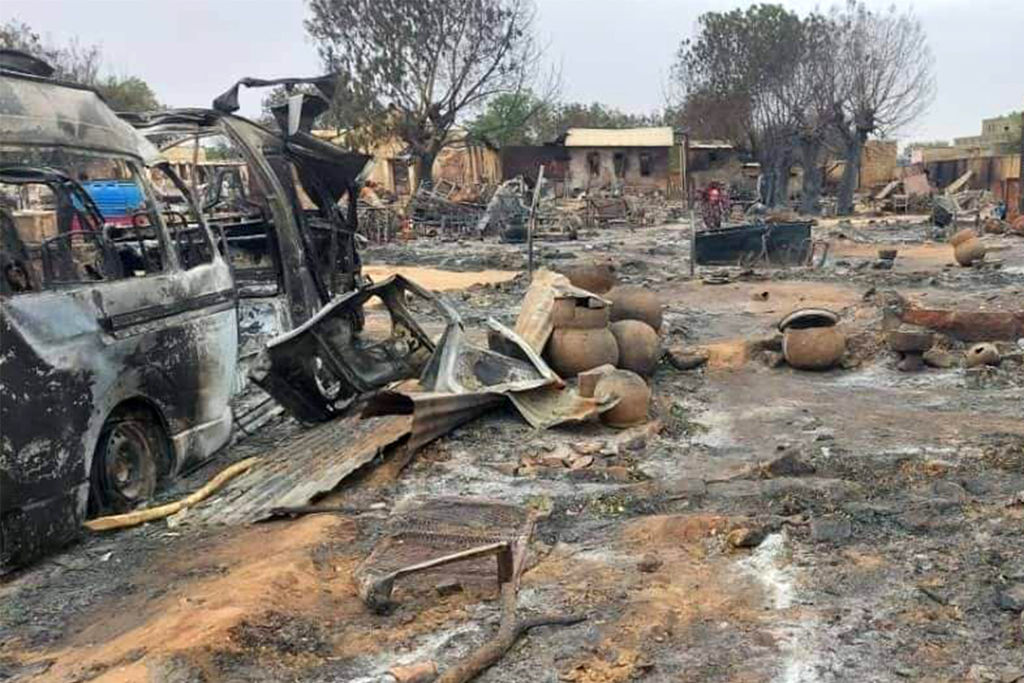ADF STAFF
The clash between the Sudanese Armed Forces (SAF) and the Rapid Support Forces (RSF) is the latest eruption of military violence in a country that has experienced 35 coups or attempted coups since 1956.
Some of the coups transferred power between military leaders. Others ended short-lived periods of democratic rule in the 1950s, 1960s and 1980s.
Sudan’s long history of military governments “has stood in opposition to the persistent struggle of the Sudanese people to midwife a democratic political order,” researcher Gashaw Ayferam wrote recently for the Carnegie Endowment for International Peace.
Like those previous coups and attempted coups, the current violence is fueled by an abundance of weapons but even more so by the competing financial interests in a government built around cronyism, kleptocracy and using public office for personal gain, according to Ayferam.
For that reason, the fight for dominance between SAF leader Gen. Abdel Fattah al-Burhan and the RSF leader known as Hemedti, is as much about preserving each man’s wealth as it is about the future shape of Sudan’s national security, observers say.
In the process, the warring generals threaten to tear the country apart, according to Sudan expert Alex de Waal, executive director of the World Peace Foundation.
“The fight began as a mobster shootout over which soldier-business cartel would run Sudan,” de Waal wrote recently in The Conversation. “But the two bosses are losing their grip.”
The conflict that began on April 15 has its roots in the 2017 decision by former dictator Omar al-Bashir to install the RSF as an independent military force loyal to him that would be a hedge against the SAF.
The RSF grew out of Darfur’s Janjaweed militia that al-Bashir used in the 2000s to quash rebellions in the western part of the country. After 2017, the RSF’s experienced street fighters became an extension of the military and put down protests and demonstrations in Khartoum and elsewhere, skills that became an advantage when fighting broke out this year.
Al-Bashir rewarded Hemedti and his family with access to Sudan’s gold mines — access that made Hemedti one of the country’s wealthiest men and helped him build ties with Russia’s Wagner Group mercenaries, who came into the country in 2017. Together, Hemedti and Wagner have smuggled large amounts of Sudanese gold out of the country to their own benefit.
As the head of the SAF, al-Burhan, like other military leaders, has benefited from the military’s deep involvement in Sudan’s national economy. The military controls 250 companies in key industrial sectors that include gold mines, oil fields and farming. Before Sudan’s 2021 coup, then-Prime Minister Abdalla Hamdok noted that the military controlled a large percentage of Sudan’s resources, making it unaccountable to the government and enriching its leadership. He pledged to return some of those resources to the government’s hands.
The military also runs its own weapons manufacturing facilities, providing it with the firepower its rivals in the RSF have acquired lately either by trafficking weapons from outside Sudan via the Wagner Group or by raiding military bases.
Forces aligned with both al-Burhan and Hemedti stand to lose huge amounts of wealth if they lose this fight. Hemedti and the RSF also stand to lose their independence under a proposal that would merge them with the SAF. By seeking to make the RSF Sudan’s dominant military force, Hemedti also seeks to guarantee his hold on the country’s gold mining industry.
Should the SAF prevail against Hemedti’s paramilitary forces in the center of the country, the RSF is likely to set up its own fiefdom in Darfur, where it already has its headquarters. That essentially would divide control of Sudan between the RSF in the west and the SAF in the rest of the country, according to Suliman Baldo, executive director of the Sudan Transparency and Policy Tracker.
Any territory ruled by the RSF likely would be subjected to the brutality and destructiveness that have become its hallmark, according to de Waal.
“The RSF modus operandi is to attack and loot everything — markets, farms, schools, hospitals — leaving a wasteland,” de Waal wrote. “The militiamen drive out the locals, but they can sustain themselves only by moving on to new victims. In due course they will run out of cities to pillage.”

